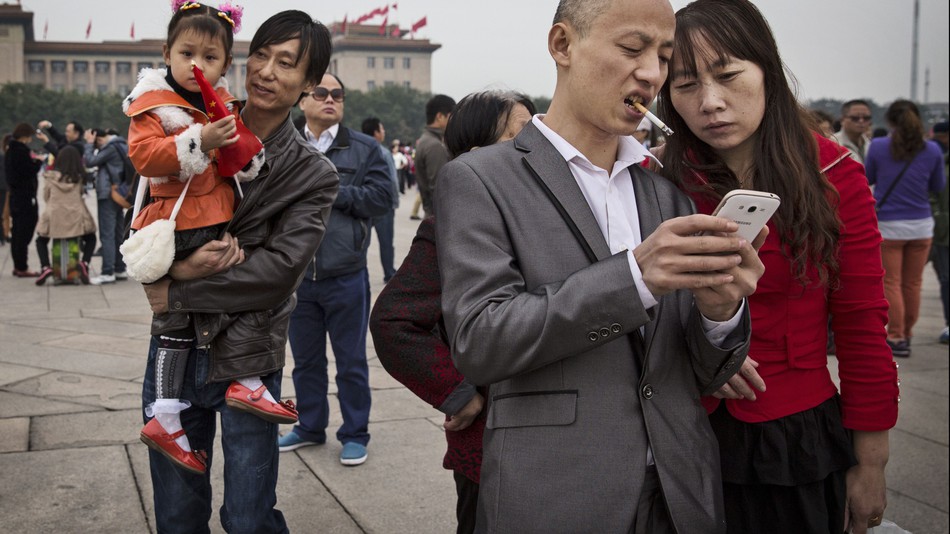China is censoring social media less now—but it's not freedom. Weibo is by far China's most popular microblogging platform, and has some 297 million monthly active users. They found that millions of posts containing sensitive content were allowed through the gates. Much of Weibo is censored by machines and by hand, and in the past, posts talking about official corruption or political uprisings would have been deleted. But the researchers found over 5 million posts accusing officials of corruption. Some of these posts were made during or even before the events occurred. "The fact that people begin discussing events before they happen indicates that Sina Weibo may be used to organise or at least coordinate collective action events," the paper says, adding that users who posted about these were less likely to be banned or muted. As a result, people may have been lulled into a false sense of security. Social media as a tool for monitoring Image: Kevin Frayer/Getty Images But people thinking a semblance of freedom creeping into Weibo may be misled. "Social media in China is likely to increase the power of the central government at the expense of local governments."
/https%3A%2F%2Fblueprint-api-production.s3.amazonaws.com%2Fuploads%2Fcard%2Fimage%2F381038%2F0f52edef-5491-4c40-8220-252cc2ac00a8.jpg)
China appears to be loosening its well-known vice-like grip on what can and cannot be said on Weibo (its version of Twitter), but don’t be fooled — it’s not easing up on censorship.
A team of researchers from Hong Kong, Sweden and the U.S. have found that the Communist Party seems to be deleting far fewer posts that it used to find objectionable.
Weibo is by far China’s most popular microblogging platform, and has some 297 million monthly active users.
The researchers published a paper detailing their analysis of 13.2 billion blog posts on Weibo over a five year period, from 2009 to 2013.
They found that millions of posts containing sensitive content were allowed through the gates. Much of Weibo is censored by machines and by hand, and in the past, posts talking about official corruption or political uprisings would have been deleted.
But the researchers found over 5 million posts accusing officials of corruption. Over 300,000 posts talked about riots…

COMMENTS